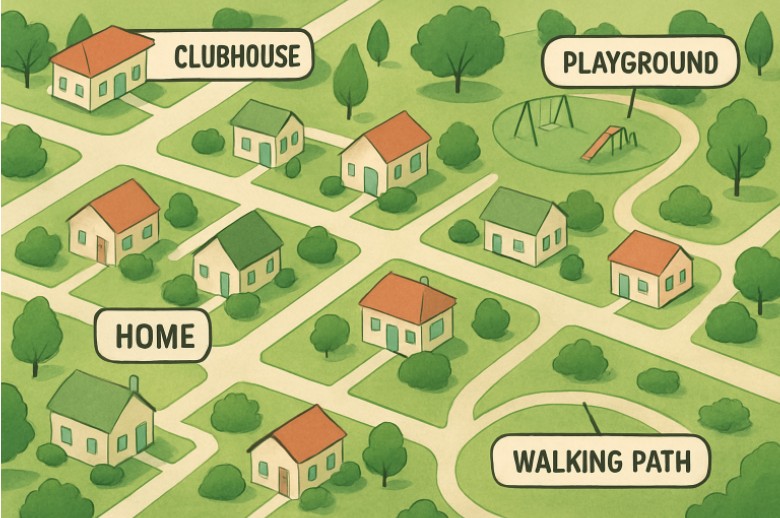Key Benefits of Living in a Master-Planned Community
Master-planned developments attract with a sense of order and security, including patrols, access-controlled gates, and on-site staff, which ease worries. Homes are often near top schools and retail hubs, boosting convenience. This structured lifestyle reduces household management time, allowing more leisure and neighborly connections.
Choosing a home in a master-planned community offers a well-designed environment with amenities like landscaped boulevards, gated entrances, clubhouses, pools, tennis courts, and nature trails. Residents often build strong social bonds through community events, shared amenities, and organized homeowner groups. Those searching for Wellington FL homes for sale will find that many options in master-planned communities offer these perks, fostering a vibrant and secure lifestyle that appeals to families, retirees, and young professionals alike.
Essential Considerations Before Buying
Before buying, look beyond curb appeal and amenities. Master-planned communities follow rules set by developers and managed by homeowners’ associations (HOAs), covering everything from architecture to holiday decorations. Review the community’s covenants, conditions, and restrictions (CC&Rs), as they affect daily freedoms and personal expression. Consider your lifestyle needs and how much regulation you’re comfortable with. Families should check local schools and playgrounds, pet owners should review animal policies and green spaces. Investigate the developer’s past projects and reputation, as community upgrades and future plans influence property values and your living experience.
Understanding Community Fees and Financial Commitments
One of the key differences between master-planned living and traditional neighborhoods is the ongoing financial commitment. HOA dues, assessed monthly or quarterly, fund services like security, landscaping, recreation, and amenities. Costs vary by community size and services. Reviewing financial disclosures helps set a realistic budget and avoid surprises. Some communities may charge special assessments for unexpected costs or improvements, and extra fees may apply for premium amenities like golf courses or marinas. Ask about fee increases or caps to plan for future costs. Transparency on fees ensures a positive homeownership experience.

Rules, Restrictions, and Community Governance
Every master-planned community is governed by detailed regulatory documents, typically known as CC&Rs. These documents outline what homeowners can and cannot do—from permissible paint colors on your home’s exterior to where guests may park and seasonal decor restrictions. While these rules promote consistency and protect property values, some find them more limiting than anticipated. Discuss these guidelines with your real estate agent or seek legal advice if anything is unclear. Being informed now can prevent future frustration.
Maintenance and Upkeep Responsibilities
Maintenance structures in master-planned developments are a defining benefit, relieving residents of many labor-intensive tasks such as landscaping, snow removal, and upkeep of shared recreation spaces. However, not all responsibilities are collective; expect to manage utilities, interior repairs, and, in some cases, elements of exterior care. Verify which services are included and review policies on modifications or upgrades to individual properties. For those desiring minimal personal upkeep—such as “lock-and-leave” arrangements popular among frequent travelers—it’s crucial to confirm that the community provides this level of service.
How Master-Planned Communities Affect Resale Value
Homes within master-planned communities are often prized for their stable values and market desirability, particularly in locations with robust amenities and positive reputations. These neighborhoods are known for their curb appeal and controlled environments, often resulting in shorter market times and increased buyer interest. However, excessively high fees or stringent rules may hinder resale potential for certain buyers, so keep an eye on local real estate market trends and consult your agent regarding historical appreciation rates within the community.
Connecting with Current Residents: Questions to Ask
Beyond researching public information, having candid conversations with current residents can shed valuable light on daily life and the effectiveness of the HOA. Ask questions like: How well does the HOA respond to maintenance or neighbor disputes? Are promised amenities well-maintained and accessible? Have there been unexpected assessments or challenges with the rules? These insights help set realistic expectations and highlight any “hidden” aspects that listings or official materials may overlook.
